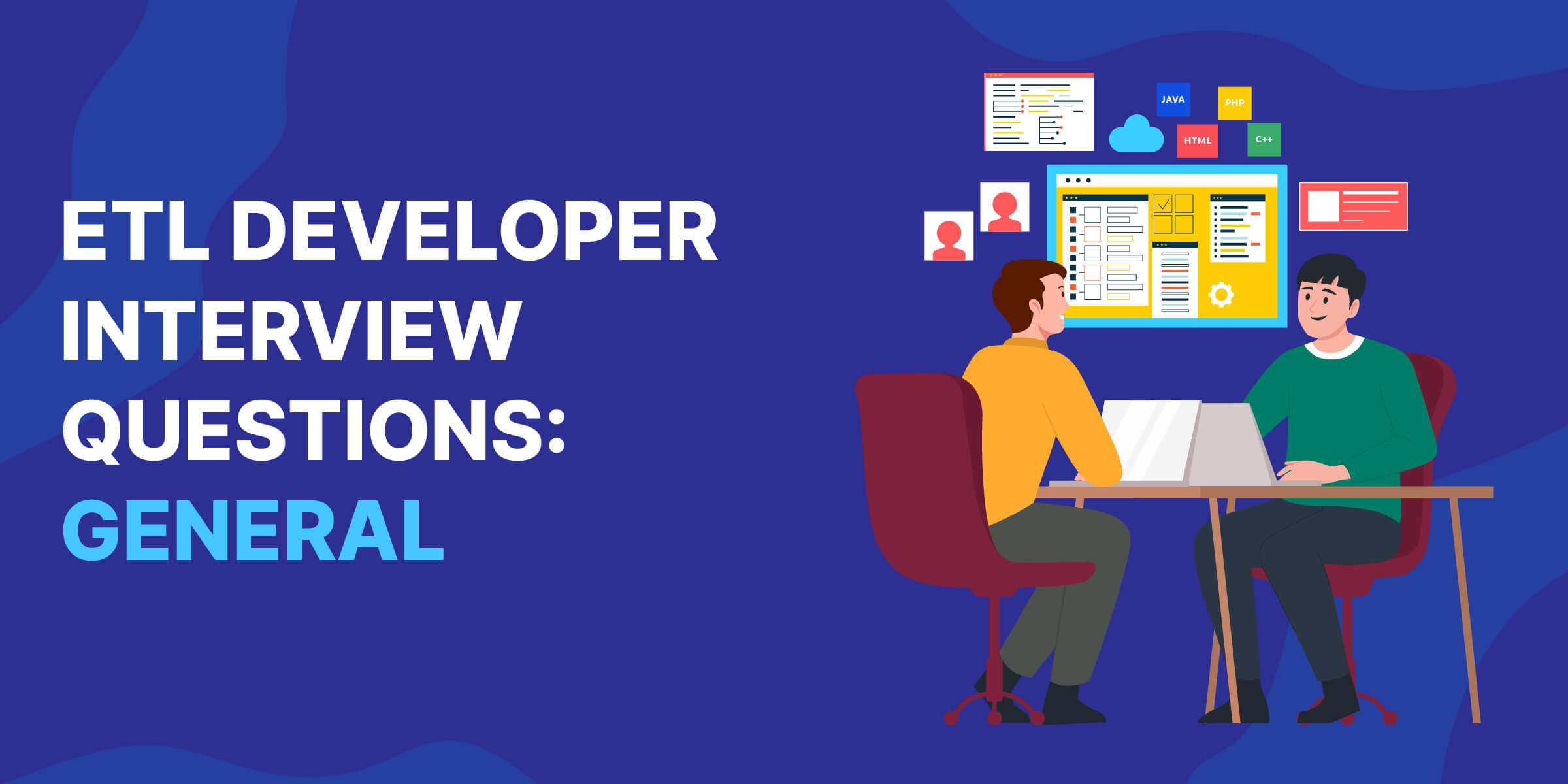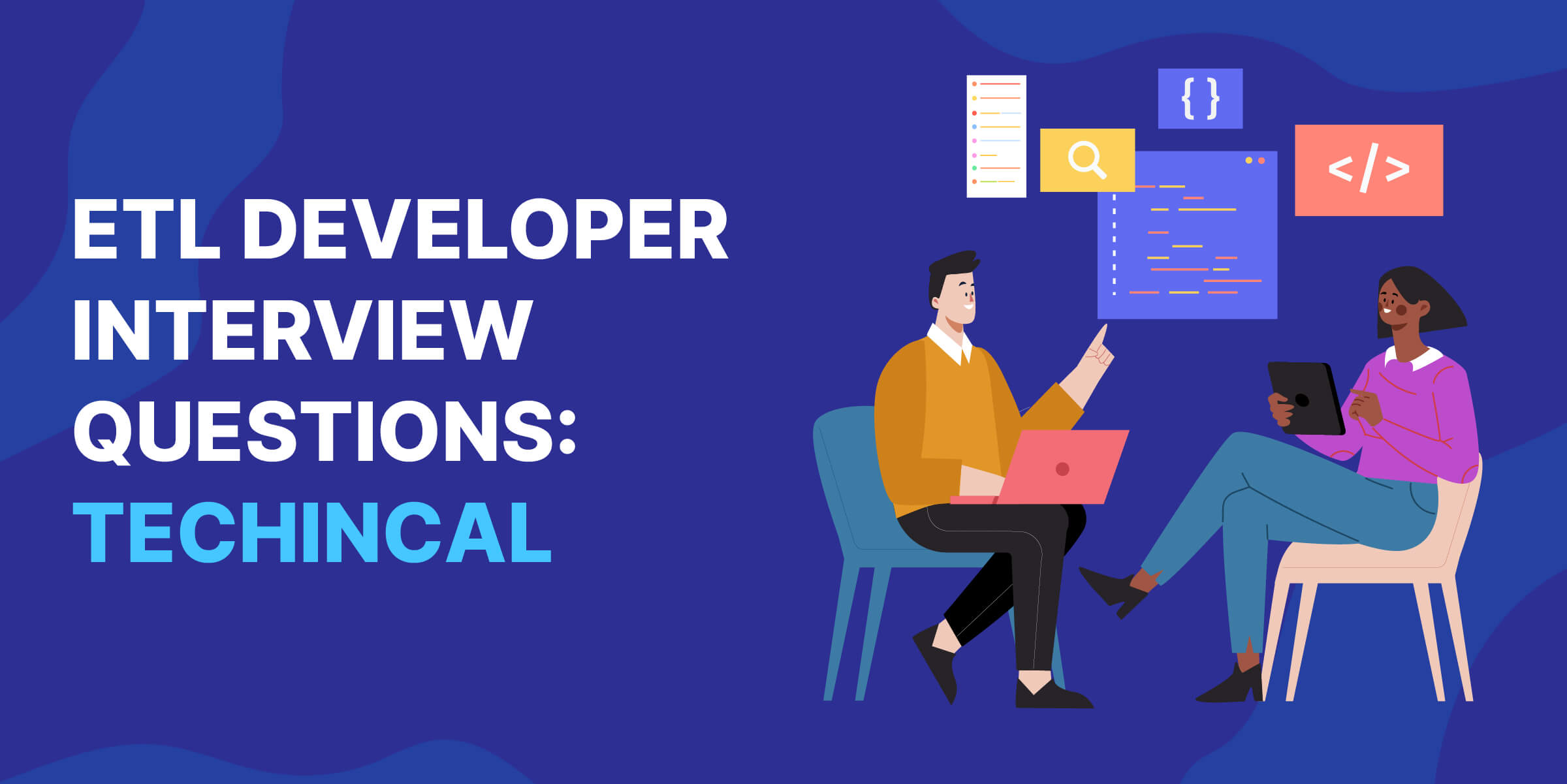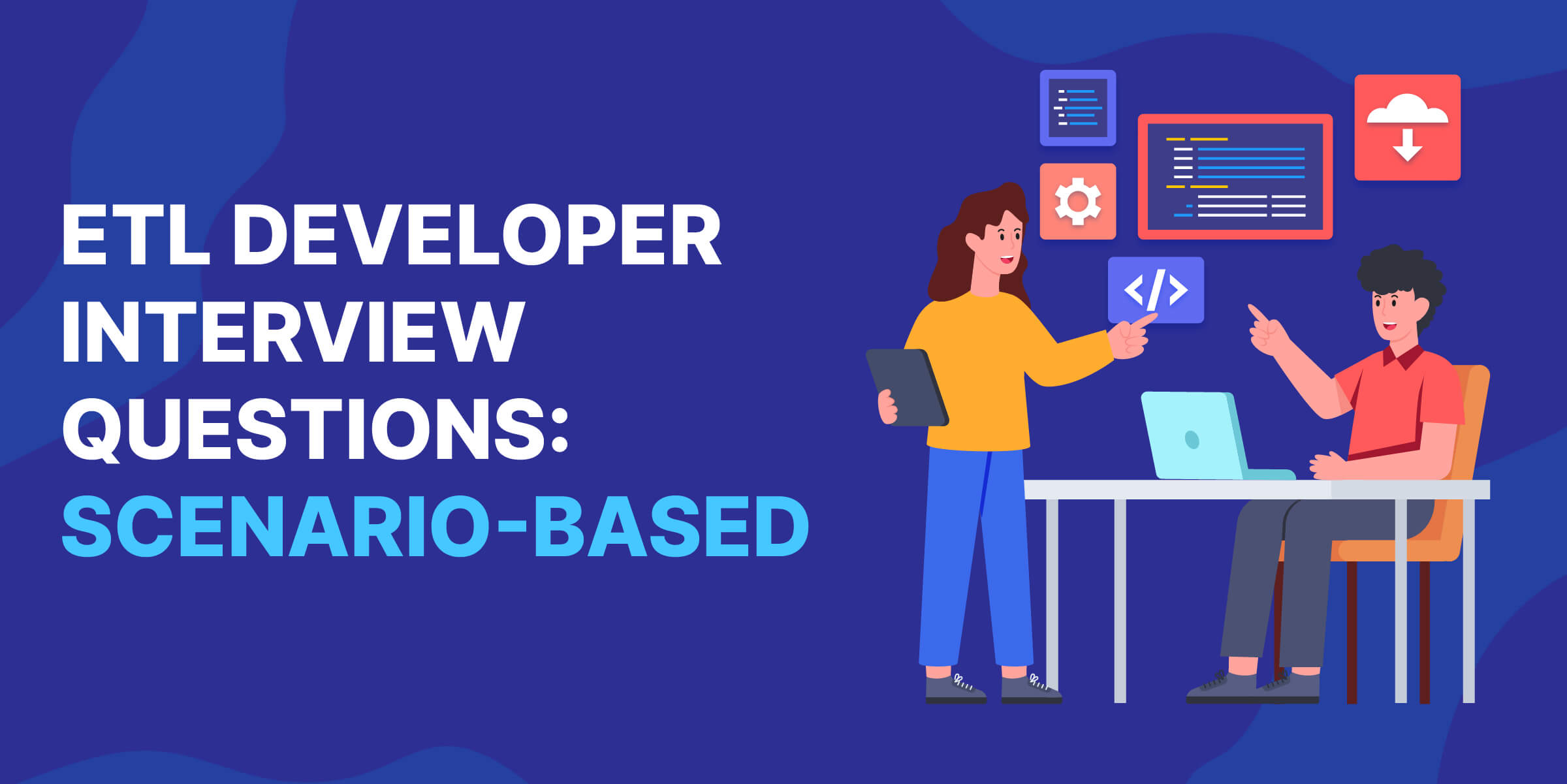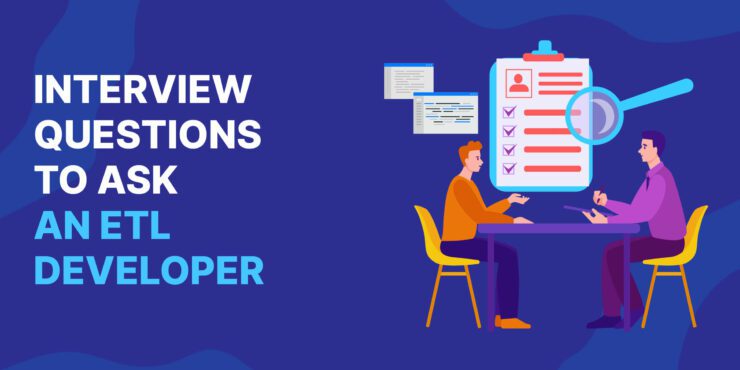You’re moving along the process of hiring an ETL developer and now it’s time to interview your shortlist.
Where do you start?
We’ve done the research and tested these out ourselves so you don’t have to. Here are 20 questions you should ask an ETL developer in your interviews.
Why We Like Toptal
- Top Talent: Get access to elite, pre-screened candidates (only accepts the top 3%)
- Flexibility: Ideal for long-term or shorter-term specialty projects
- 14-Day Risk-Free Trial: Only get billed if you're satisfied
We offer this website completely free to our visitors. To help pay the bills, we’ll often (but not always) set up affiliate relationships with the top providers after selecting our favorites. However, we do our best not to let this impact our choices. There are plenty of high-paying companies we’ve turned down because we didn’t like their product.
An added benefit of our relationships is that we always try to negotiate exclusive discounts for our visitors.
General Questions for an ETL Developer


General interview questions to ask your ETL developer can give you a “big picture” sense of how knowledgeable your prospective ETL developer is. They’re the first step to finding a qualified, capable ETL developer.
Try these key questions in your ETL developer interview:
1. What are the key steps of the ETL process?
While the acronym covers the key three steps in theory (extract, transform, load), the process is a bit more complicated than that.
When you ask this question, make sure they cover one of the key steps to the ETL process that isn’t present in the acronym itself: analysis.
2. What are the differences between ETL and ELT?
In a literal sense, the difference is the order of the letters, as the steps are similar.
However, as with many other things in development, it’s not quite that easy.
Your prospective ETL developer should be able to explain that ETL deals with transforming the data into the staging system before loading it into a warehouse, while ELT deals with loading the data into the system and transforming it within that warehouse.
3. How do you handle tight deadlines or time-sensitive tasks at work?
ETL developers may have to work quickly to complete data transformation in a short timeframe, so ETL developers should be comfortable with working efficiently with occasionally tight deadlines.
4. How do you approach collaboration? Are you a team player?
ETL developers need to work across multiple development teams to complete projects, so it’s important that your ETL developer has a collaborative mindset and is a team player.
5. Why are you interested in this position at our company?
This helps you gauge if the ETL developer has done their homework and looked into your company and understand why they want to work with you. This is a great way to determine if someone understands your work culture and thinks they would mesh well with your company.
6. What industries do you specialize in?
Different industries require different techniques and approaches, so you’ll want an ETL developer who understands your niche.
7. What were your responsibilities in your previous role?
This helps you understand what your ETL development candidate specifically did in their previous role and what their capabilities are. You can also understand what other experience they have as a developer in different development roles.
8. How do you bill for your services?
Understanding whether an ETL developer bills per hour, per month, or project helps you understand whether or not they fit your company’s budget for the position. It’s also important to ask what they charge, especially if you’re working with a freelancer.
9. Do you have any questions about your role or this company?
Good ETL developers are curious and they’re also trying to discover whether your company is a good fit for them.
This allows them to gain a better understanding of what is expected of them. It helps them determine if this is the right opportunity for them, saving you time and money on a candidate who doesn’t end up being a good fit.
Technical Questions for ETL Developer Interviews


Your ETL developer needs to know their stuff when it comes to key terms and processes in the ETL space.
These are a few questions you can ask to gauge their knowledge and understanding of ETL practices.
10. Explain the three-layer architecture of an ETL cycle.
Data warehouses comprise three separate areas that every ETL developer needs to understand.
These steps are:
-
- Staging layer: This layer holds data extracted from different data sources. Developers transfer data into this staging area first to conduct a range of transformations.
- Data Integration layer: This layer transforms data from the staging layer to the database layer.
- Access layer (dimension layer): This is the layer where end users access data for analytical reporting and information retrieval.
11. What is the staging area and why is it important?
The staging area is such a significant part of the ETL process that any ETL developer should be able to answer this. This layer is crucial for consolidating, cleansing, and transforming data from various sources. It ensures data integrity and quality, essential for the rest of the ETL process to work smoothly.
12. Explain the different types of partitioning and when they should be used.
Partitioning is the process of dividing a large dataset into smaller, more manageable segments or ‘partitions' during the data processing phase. This technique is great for more efficiently and effectively handling large volumes of data.
The two types of partitioning are hash partitioning and round-robin partitioning. The ETL developer should be able to explain that hash partitioning uses a specific hash key (algorithm) to divide data while round-robin partitioning divides rows into equal partitions.
13. What types of applications and tools are used in ETL?
An ETL developer should be able to tell you about the various tools and applications typically used in ETL, for example:
-
- Microsoft SQL Server Integration Services (SSIS)
- Informatica PowerCenter
- Xplenty
- IBM InfoSphere DataStage
- Talend
- Oracle Data Integrator
- SAP Data Services
- Pentaho
- Hadoop
- Spark
- Etc…
14. How do you stay updated with the latest trends and technologies in the ETL field?
The world of ETL development is ever-changing, so your ETL developer needs to stay updated on the latest tools and technologies to create the best ETL process possible.
Scenario & Experience-Based Questions for ETL Developer Interviews


Knowledge and skill mean nothing if an ETL developer doesn’t know how to apply it in practice.
These questions can help you verify that the ETL developer you’re interviewing has handled real-world development scenarios and learned from them.
15. Describe a challenging ETL project you worked on. What made it challenging and how did you overcome those challenges?
This question allows you to get a better sense of the applicant’s problem-solving skills and experience with complex ETL tasks.
16. How would you approach modifying an existing batch ETL process to support real-time data processing requirements?
Gain insight into how the ETL developer you’re interviewing approaches and allows you to see if that process fits your needs.
17. What are some of the ETL tools you have experience with, and which one do you prefer? Why?
Asking what specific tools an ETL developer has experience with and which they prefer to use helps gauge compatibility with your own process.
18. Imagine you're working on an ETL process, and suddenly the schema of the source data changes. How would you handle this situation to ensure minimal disruption to the ETL process?
A good ETL developer needs to troubleshoot in real-time while keeping processes running smoothly.
19. If an incremental load process fails midway, how would you ensure data consistency and completeness when you restart the process?
Things are bound to go wrong at some point. You need to know that your ETL developer will be able to handle these setbacks while keeping data consistent once a failure is overcome.
20. What is your biggest failure as an ETL and what did you learn from the experience?
Everybody makes mistakes, but it’s important to learn from those mistakes to avoid making the same ones in the future.
This question is a great way to gain an understanding of how your ETL developer can identify and accept when they have failed and how they were able to turn that failure into a positive
Best Place to Find ETL Developers


If you’re looking for a vetted, talented ETL developer, we recommend Toptal.
Their rigorous screening process only accepts the top 3% of freelance talent that applies, so you know for sure that your ETL developer has loads of experience and is up for the job.
Why We Like Toptal
- Top Talent: Get access to elite, pre-screened candidates (only accepts the top 3%)
- Flexibility: Ideal for long-term or shorter-term specialty projects
- 14-Day Risk-Free Trial: Only get billed if you're satisfied
Frequently Asked Questions
What does an ETL developer do?
An ETL developer is responsible for extracting, transforming, and loading data into a warehouse environment they have created.
Is an ETL developer an SQL Developer?
An ETL developer focuses on mastering various ETL tools and processes while an SQL developer has extensive knowledge of the SQL programming language. While the two may overlap, they’re not technically the same role.
Does ETL require coding?
ETL requires a level of coding to a certain degree but relies heavily on tools to accomplish processes without necessitating code.
What are the interview questions for ETL Testing?
A few interview questions for ETL testing include “Explain partitioning and the different types?” “What is the difference between ETL and ELT?” “What is staging and why is it important?” and “What languages and tools are you familiar with?”
What is the difference between ETL tester and ETL developer?
An ETL developer would create the process of “extract, transform, and load,” while an ETL tester would just make sure this process functions as it should.
What is the difference between data developer and ETL developer?
An ETL developer is a specific type of data developer and often works with other data developers as part of a larger team.
What is the difference between SQL and ETL developer?
An ETL developer focuses on mastering various ETL tools and processes, while an SQL developer has extensive knowledge of the SQL programming language.





















